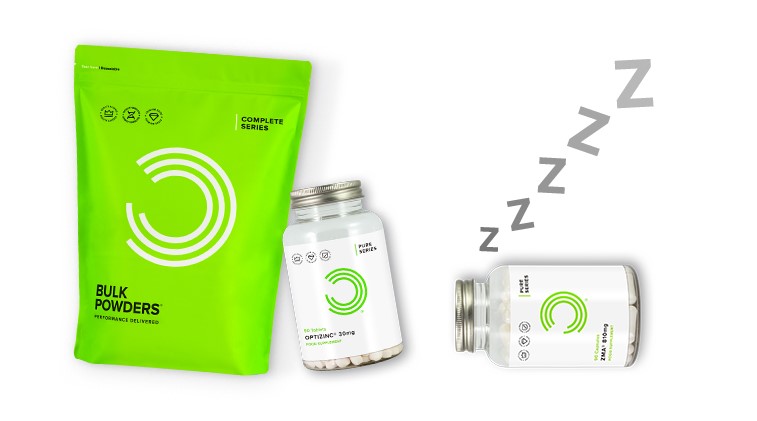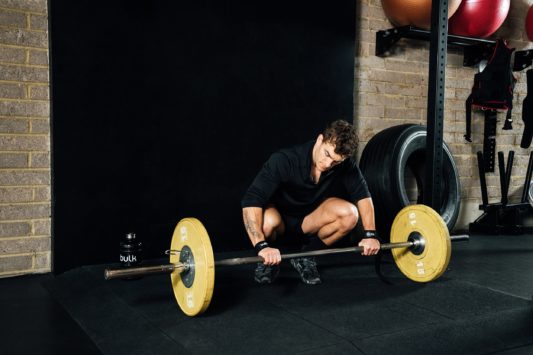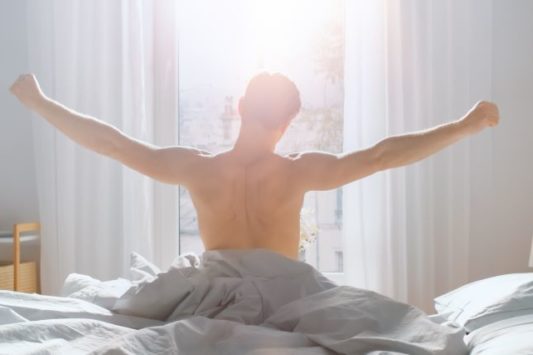How often do you feel refreshed after a night’s sleep? And how hard do you find it to actually nod off in the first place?
A lack of sleep, even as little as a couple of night’s worth, can seriously impact your performance at work, or more importantly – the gym.
So what can you do to help you Segway into the Zee zone? It can be very frustrating not knowing what is causing your poor sleep or your inability to get to sleep, so let’s examine some possible causes and some good pre-sleep hygiene methods.
1.) Caffeine
Caffeine (such as a coffee) can have an effect in around 20 minutes, even sooner to the less acclimatised and a pre-workout maybe even sooner still. This can sometimes be a benefit; if you’ve got a big gym session or an event you want to be primed for (something like ELEVATE™ or ELEVATE™ ZERO certainly hits the spot!), but caffeine has a half-life of about 5 hours. So bear this in mind when using caffeine when looking at possible causes for difficulties getting to sleep.
2.) Electronic devices
Electronic devices emit white and blue light from their display in order for us to use them. Now while we all love watching TV and our mobiles are pretty much permanently attached to our hands, these devices are killers when we are trying to get to sleep. This light can seriously affect our melatonin levels – the hormone our body uses to control your sleep-wake cycles.
We all have things we want and need to do for our work or connecting with friends on social media in the evenings, but this may be at a price of a decent night’s slumber. A good habit would be to try and switch off (or put down!) our devices and start to wind down for the night; about 30 minutes (or more if you are able to) before our planned head down time. Doing this regularly will help with good sleep hygiene.
A good substitute for the electronic devices is reading a book in bed. This places you in the right environment and can also work to fatigue the eyes to further encourage sleep. I find fiction better than factual books as they tend to detach the need to question or fully absorb the text.
3.) Stress
Stress is one of the most catabolic substances out there. Although it may seem a bit of a paradox getting stressed about stress affecting your sleep, taking some time or asking for help to try and identify causes or triggers of your stress can be your first step into trying to manage it. Good sleep can really help with putting everything else into perspective when dealing with problems and issues.
Stress can present itself in many ways, not all of it visible.
4.) Over-training / Over-reaching stresses
We all love to smash the gym, aiming for PB’s or just generally attempting to better ourselves. The only issue is that this constant exertion can leave us feeling a little ‘spent’.
Have you ever had the feelings of general aches and pains, lack of progression or even a drop in performance, poor digestion, tension (especially around the neck and jaw area) and general fatigue and unrest? These are all classic signs that your body isn’t happy and showing signs of stress. This type of stress can also affect your sleep. Taking a break from the training or implementing a de-load can help the body recover and manifest itself in a better quality of sleep.
There are also some supplements available to help promote a good night’s sleep. Products like ZMA (which contain Zinc and Magnesium) and OptiZinc®, or Complete Bedtime™ (which contains the amino acid Tryptophan) may help promote a good night’s sleep.
Getting into the right habits and being aware of potential hazards that prevent you hitting the hay is in your hands.
Now, turn out the light will you.
Matt Argall
WNBF pro.








